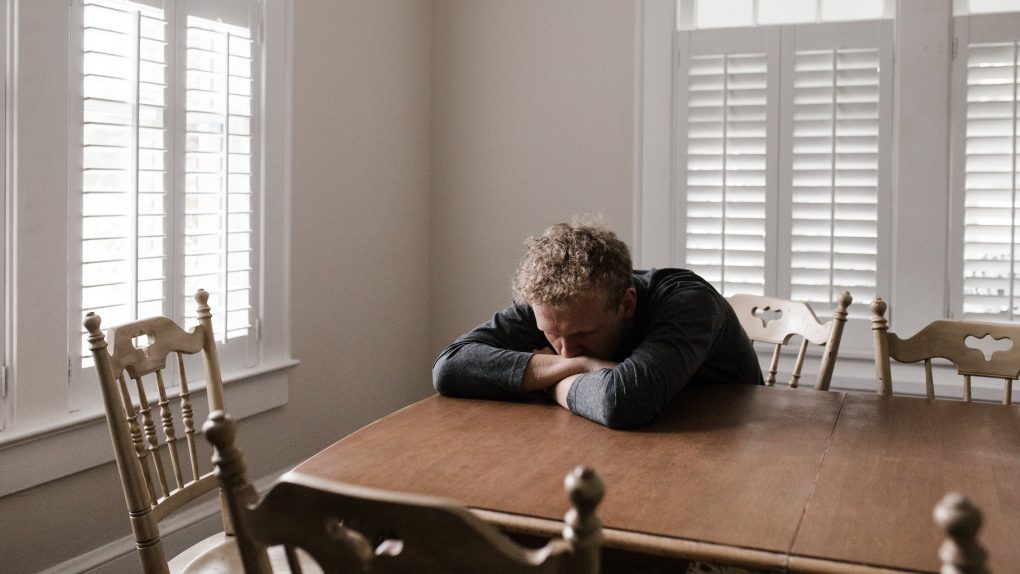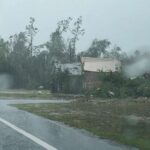Global Courant 2023-04-28 06:30:14
Those who experience serious mental health problems often face stigma from society, but a new study has found that their close relatives also bear the brunt of that stigma.
One in three relatives of those dealing with little-understood mental illnesses such as schizophrenia or disturbed thinking reported feeling isolated and stigmatized just because of this close relationship.
The study, which was published last month in the peer-reviewed International Journal of Environmental Research and Public Healthwanted to focus on what researchers see as an overlooked demographic.
“We wanted to reach a group of people who we think are particularly marginalized and one of the things that immediately struck us is that this is a group of people who really haven’t been well studied. And that really says how isolated they are,” Joel Goldberg, a health professor in the Department of Psychology at York University, said in a press release. “We found that family members were not getting the social support they needed, even from other family members.”
The phenomenon, called “stigma by association,” is essentially a splash zone effect caused by targeted discrimination — when a group or individual is directly stigmatized by society or other individuals, those around them also feel the effects.
Researchers reached out through a number of advocacy and health groups, including the Institute for Advancements in Mental Health, the Canadian Mental Health Association, Reconnect Community Health Services, and the Schizophrenia Society of York, to survey relatives who live with relatives who have serious mental illnesses. , which includes schizophrenia, other psychotic disorders, and bipolar and major depression, among others.
They surveyed a total of 124 family members, of whom 81 live at home with the relative in question and 43 do not live in the same home. Family members were asked to complete questionnaires that included questions such as whether they had ever felt they had to hide their relative’s mental illness from others, and whether they felt they had people to lean on when needed.
Family members reported feeling loneliness, isolation, and feelings of guilt or failure. Many felt unsupported, and a third passed the threshold of experiencing stigma by association.
A 62-year-old mother of an adult son told investigators in York that she and her son were “shunned” by other family members after he was diagnosed with schizophrenia.
“When we told our family, they shut us out. I’m so hurt and so angry,” she says in the study.
Another participant reported that their sister had cut them off since discovering the mental illness of that participant’s close relative.
Schizophrenia is experienced by about one percent of the population and is usually characterized by auditory hallucinations, delusions, and disturbed thinking that can seriously affect an individual’s normal decision-making.
It’s also a condition that’s been seriously misrepresented in the media, leading to even more stigma against it, researchers said.
“The few times the public hears stories about people with schizophrenia, they hear about someone who hasn’t taken their meds or about acts of violence,” Goldberg said. “These ideas become the basis of the stigma and families are then associated with it.”
Researchers found that relatives who lived in the same house as their relative with a severe mental illness were more likely to feel stigmatized.
This may be because they have taken on additional caregiving responsibilities that add additional stress and risk of burnout, researchers said.
The feeling that society blamed them for their relative’s mental illness was reported by many relatives.
“Raising a child has been very difficult because of the stigma,” a 58-year-old mother of a 24-year-old son with severe mental illness said in the study. “Being blamed as a ‘bad parent’ was common for many years; from close family to strangers, to teachers, to healthcare workers. It was excruciatingly difficult and contributed to chronic feelings of self-blame, a sense of failure, feelings of helplessness, hopelessness, confusion, chaos, isolation.”
A recurring theme was the lingering sense among those surveyed that their lives didn’t matter, a concept that Canada Research Chair Gordon Flett, one of the study’s authors, describes as “antimatter.” Flett’s research often looks at how a lack of a sense of “matter” can lead to or exacerbate other mental health problems.
The study found that relatives who struggle with this feel unable to talk about their experiences for fear of overshadowing or hurting their relative’s struggles, and ultimately feel that their own lives are less important overall is.
Researchers noted that since they found participants through connections to community organizations — suggesting that the family members they spoke to have some form of support through these organizations — the figure of one in three family members experiencing stigma may be even higher in the wider population.
They hope that interventions can be developed to help this group, for whom there is currently not much support.
“If you feel insignificant, if you feel like the people around you are treating you like you’re invisible, it can have really detrimental effects on your sense of well-being,” Goldberg said. “We hope this Mental Health Week will bring a lot of attention to family members, let them know that we don’t see their lives as insignificant, that we don’t see them as invisible, that their lives matter. .”








